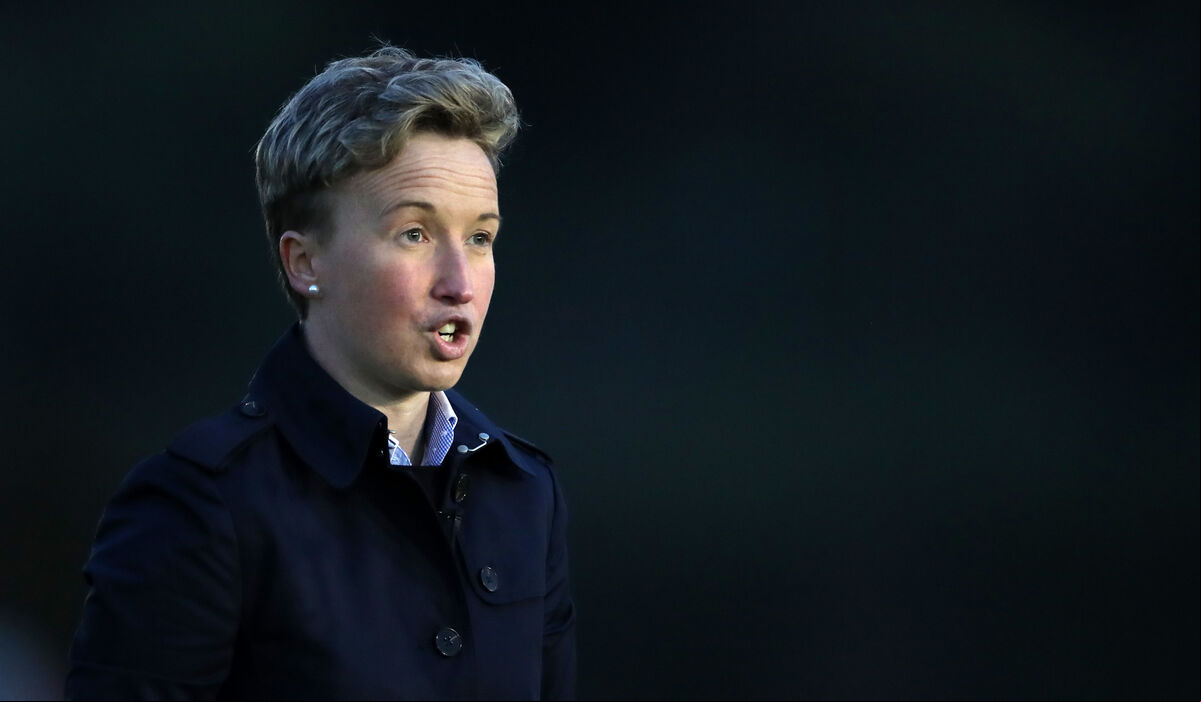Olympics: Drone scandal opens questions to the extent of cheating at the Games

Canada fans pose during a women's Group A soccer match against Colombia that Canada won to secure their place in the Olympics quarter final. Picture: AP Photo/Julio Cortez
Going into the Olympics, the Canadian’s women’s soccer team may have expected to come under the media spotlight to a degree, being that they were the defending gold medallists and all. But there was no way that they could have predicted the maelstrom of attention and speculation they fell into once it was discovered their management team were into a bit of competitive espionage.
While perennial football giants the USA and favourites Spain were expected to be at the centre of the media coverage, they have in fact been relegated to ‘in other news’ by the bizarre events behind the Canadian team’s efforts to spy on the training grounds of their first-round opponents New Zealand, with a drone.
In a rare example of swift and appropriate justice, the International Olympics Committee (IOC) sanctioned Canada with an unprecedented six-point deduction and sent home three senior management personnel, including head coach Bev Priestman.
The defending champions did appeal the points-deduction to the sports Court of Arbitration on Wednesday, but the punishment stood, leaving the Canadians on zero points after two games, both of which they had won, beating the Kiwis and the fancied hosts, . However, with the quirks of the qualification and the way results in the groups panned out they still could qualify if they beat then group leaders Colombia in the final game that same night.

A Vanessa Gilles' 62 minute headed goal against the South Americans proved to be enough for Canada and they won. Booking an unlikely place in the quarter-finals against the 2016 champions .
It shows you that one of the best motivations a side can receive is the feeling that the whole world is against you. Most of the time that has to be psychologically introduced by the management and is not really true. For this Canadian side, the points penalty and removal of management was enough for them to genuinely consider themselves up against the whole world, if not at least the IOC, which in the Olympics is pretty much the entire sporting universe.
So, with three wins, but only three points, they still managed to finish second in the table behind on six points. Who by virtue of finishing top get the favourable quarter final against an average Brazil side that only qualified by virtue of a best third-place finish.
The other two group winners finished on full nine points and the US and Spain now face Japan and Colombia respectively in the final eight and should manage those obstacles handily enough.

The American have been looking pretty accomplished all week in their games, conceding their only goal in the final game to Australia when they had already qualified. And again, Dennis Rodman’s very impressive daughter Trinty scored the first goal in the Yanks’ 2-1 win. They are rejuvenated under new coach Emma Hayes and will be hard to beat.
Spain comfortably saw off Brazil in their final group game. Goals from Athenea del Castillo and Alexia Putellas securing the win as the Spanish continue to go through their paces quietly and confidently in the bid to add the Olympic gold to their World Cup trophy from last year.

The Canadians, despite winning their three group games like Spain and the US, will not have it as easy in the quarters. Indeed, they face the toughest game possible in opponents and they will need the same bunker spirit that has seen them advance thus far if they are to get the better of the Germans today.
It's debatable whether Canada should even be still in the competition after been caught cheating. To be fair, there are no claims against the players themselves, but it will still feel wrong if they go on to win a medal.

In saying that, their disgraced coach Priestman raised a controversial and interesting point when she told the arbitration court that the sort of cheating that was involved in their drone scandal was common among both men and women’s teams, especially among the top-10 teams.
Now this may be seen as sour grapes coming from someone facing into a two-year ban for her part in the scandal, but it does warrant an investigation into its veracity. We can no longer be so naïve as to think sides will not cheat if they can get the chance to claim any advantage over an opponent. Performance-enhancing drugs have long been the bane of the Olympics, with limited success in battling them. Does the IOC have any measures to battle other forms of cheating?










 App?
App?







